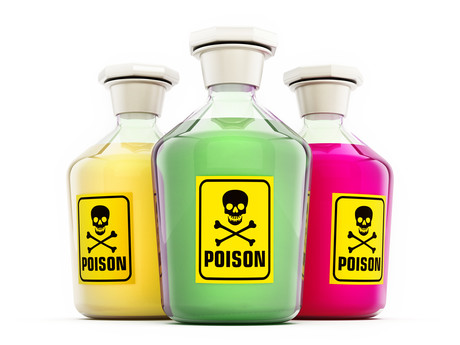Nerve agents: UK Russian ex-spy poisoning insights

What are nerve agents, and how do they work?
Typically ‘nerve agents’ are organophosphorous or carbamate compounds that work by binding to and inhibiting the enzyme acetylcholinesterase which leads to a build-up in the neurotransmitter acetylcholine (ACh) ate nerve endings. This causes activation of the muscles in particular leading to excessive stimulation.
Do the symptoms described match that this was caused by a nerve agent?
Difficult to say since the symptoms described appeared non-specific. Some of the disorientation may have been due to the early effects of agents and these are then followed by breathing difficulties and then cramps and seizures. Some of the early acute effects could have been put down to food poisoning since vomiting, diarrhoea and urinary incontinence occur (turning on all the taps is a phrase often used).
Have nerve agents been used in such isolated (ie, only two people) cases before?
The case of Kim Jong-Nam was an isolated and targeted approach to using nerve agents such as VX, but typically these are used in warfare for mass effects as reportedly seen in Syria recently and Iran (reportedly used by Iraq in the Iran/Iraq war), and on the Tokyo Underground attack in 1995 which used sarin.
Are there any clues here about how and where the nerve agent may have been delivered?
Not really, could have been delivered in a variety of ways if via covert delivery but contact with the skin might be one route for the V type nerve agents.
How will patients exposed to nerve agents likely be being cared for in hospital?
Typically this is supportive care to reduce the symptoms associated with exposure. Atropine and pralidoxime are given to reduce the effects of acetylcholine and then there is administration of anti-seizure medication to reduce any central effects of nerve agents. Ventilatory support and cardiac support is given to help with breathing since this is affected.
Do we know what the likely outcome for the two people exposed might be?
It would depend on the severity of exposure but typically if the symptoms can be controlled until the agent is removed then recovery is good. With the type of supportive care given in these cases, then there may be minimal long-term effects if treatment was rapid and effective. There are some possible long-term symptoms such as anxiety and depression but these are relatively non-specific.
Do we know where people access nerve agents?
Covert production is the likely source since they are controlled by international treaty.
Does information so far suggest this is an isolated incident; does information suggest there is any risk to the wider public?
If the agent is something like VX, then the agent is viscous and doesn’t spread far and it isn’t very volatile. Since it’s a direct contact agent, only small amounts are needed. Public exposure would be minimal since the agent would have to be applied at close range. Due to this it’s very unlikely to spread and there would be effective decontamination procedures in place to limit exposure.”
$1bn vaccine and antivenom manufacturing facility opens
A $1 billion cell-based influenza vaccine and antivenom manufacturing facility has opened in...
National concussion clinical guidelines now available
The first Australia- and New Zealand-specific guidelines for all forms of concussion — from...
Doctors criticise "risky prescribing agenda"
The AMA and RACGP have expressed disappointment in the Pharmacy Board of Australia's...

![[New Zealand] Transform from Security Awareness to a Security Culture: A Vital Shift for SMB Healthcare — Webinar](https://d1v1e13ebw3o15.cloudfront.net/data/89856/wfmedia_thumb/..jpg)
![[Australia] Transform from Security Awareness to a Security Culture: A Vital Shift for SMB Healthcare — Webinar](https://d1v1e13ebw3o15.cloudfront.net/data/89855/wfmedia_thumb/..jpg)




